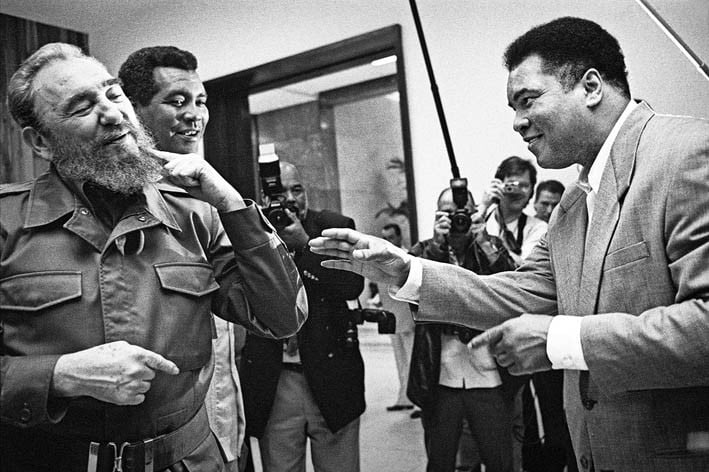
How Cuba’s ‘El Comandante’ helped Pakistani boxers make their presence felt at the international level

The death of Cuban leader Fidel Castro affected people across the world and all schools of thought expressed their sentiments according to their ideologies. There was, however, complete silence in our country. The government also did not utter a single word about the man who had a significant impact on world politics.
There was no word about him in Pakistan, which is perhaps the most anti-America country. Whoever wants to become popular here raises slogans against America. Pakistanis, even if they are dying to migrate to the US, like to speak against US policies and hold it responsible for all the world’s problems. But surprisingly the death of a person who spent his entire life resisting America got little attention here. Only a few columns were written in English and Urdu dailies.
Popular columnist Ayaz Amir felt this coldness in the society and wrote about that in his weekly column. Some Urdu writers expressed their opinions and applauded Castro’s struggle against America’s might.
I started my career in English journalism, joining "The Star" as a young journalist in search of exclusive news. In those days Professor Anwar Chowdhary was considered an icon in sports world. He was president of International Boxing Association (AIBA). I went to meet him. Pakistan was preparing for Atlanta Olympics 1996. People who love sports know who Anwar Chowdhary was. He remained president of AIBA for 16 years -- the only Pakistani to have reached such a high level in the world of sports. He was not liked at the government level because of his straightforward approach, but he was the guru and father of Pakistan boxing.
Many bigwigs in the country did not understand his position due to their shortsightedness, but his death they came to know how important he was to Pakistan. His death was indeed a great loss for the country.
I want to inform the sports lovers that Chowdhary told me in his usual style that a few days ago he had visited Cuba for AIBA’s meeting. A meeting was arranged with Cuban president Fidel Castro. Cuba has always been a force in amateur boxing and has often won many medals at the Olympics.
Chowdhary, who knew about Cuba’s strengths, infrastructure and passion for boxing, told Castro that in Pakistan boxing was considered a sport for the poor and that all sponsorship and government funds went to cricket, hockey and squash. He said that despite that there was great passion for boxing in Pakistan and that the country had produced many brilliant boxers. He told Castro that out of all international medals won by Pakistan, about half were won in boxing. Castro was inspired by the abilities of Pakistani boxers.
Chowdhary, also the president of Pakistan Boxing Federation, was worried about training the boxers for Atlanta Olympics because there was no money and as usual the country’s sports ministry was not ready to pay attention to boxing.
Having listened to Professor Chowdhary, the great communist leader said to AIBA president that he could bring Pakistani boxers to Cuba for training for Olympics. He promised that his government would bear the expenses of board and lodging, as well as training.
When I filed the story, the editor, who was my mentor, told me to increase the length of the story, saying he wanted to give it appropriate display. The news editor was himself an admirer of Castro.
He edited the story and wrote in the headline that Castro was helping Pakistani pugilists. People were surprised about how Chowdhary arranged Castro’s support for Pakistani boxers.
I have written this article to make the record straight and inform people that Castro helped Pakistan at a difficult time. People should remember those who helped them, whatever ideology they may have. It was his greatness that he supported Pakistan which was an ally of the US.